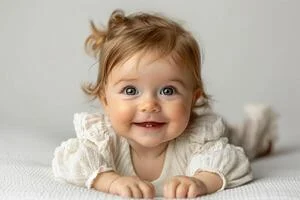Losing a parent as an adult hits differently. It’s a shared experience that many can relate to, yet each journey is deeply personal, shaped by unique memories and emotions. My father’s passing was part of a universal narrative, but only my family truly grasped its significance.
At 23, I was in Berlin, supposed to be diving into German studies, but I ended up spending late nights with a new friend who later became my husband. Back then, the Internet was a little iffy—almost dial-up quality. I’d visit a smoky Internet café a few times a week just to check my Hotmail and reassure my parents I was doing okay.
One cold January morning, a startling email from my dad popped up: “I’m scheduled for a minor surgery to remove a rib with a cancerous growth,” he wrote, downplaying the situation. “Don’t worry. Everything will be fine.” Thus began his six-year struggle with multiple myeloma—a term that quickly became a part of our vocabulary.
His cancer story started abruptly. He was watching the NewsHour when he sneezed and felt a sharp pain in his rib, which he thought was from working out. However, that pain led to an emergency room visit, where a series of tests revealed the shocking truth: this seemingly healthy man had been unknowingly living with a serious illness.
I eventually returned home and enrolled in grad school, and life for my family returned to some semblance of normalcy—at least for a while. There were still disruptions—new symptoms and painful procedures—but doctors managed to keep the monster at bay for a time. However, by September 2008, it roared back, marking the beginning of the end.
My family took turns being there for my dad, assisting him as he struggled to get out of bed. I recall sitting in my old bedroom, which had transformed into a makeshift hospital, watching the news with him. The economy was collapsing, and he felt the weight of the world on his shoulders, mirroring his own struggles.
Cancer brought us closer. For the first time, we had hours to spend with each other, waiting for appointments and hospital visits, where we shared candid conversations ranging from lighthearted gossip to deep, heartfelt topics. Knowing he had limited time sparked an openness between us that I had never experienced before.
Despite being a cultural Jew and an atheist, my father sought answers in the face of his illness. He rejected any platitudes about spirituality and demanded to understand the nature of his disease. His frustration was palpable as he questioned the purpose of cancer and life itself: “Why are we prisoners of our biology?”
Cancer doesn’t discriminate; it affects everyone, regardless of status or age. As my father faced the end, I sat beside him, pondering my own mortality. Would I endure similar suffering? Would my children witness it?
Our last Father’s Day together was pretty typical. My family never put much emphasis on the holiday; we always thought mothers deserved more recognition. Back in the day, my mom would dig out our hastily chosen gifts—usually ties for my brother and me to give to our dad without much fanfare.
Now, however, I embrace the chance to honor fathers, regardless of how commercialized it may seem. I’ll recall my dad’s voice and laughter, share stories with my daughter who never met him, and vividly picture him in good health, sitting on the couch, yelling about politics while munching on snacks. For me, Father’s Day without my father has taken on a profound new meaning.
In case you’re interested in pregnancy topics, check out this insightful piece about home insemination kits, or visit Make A Mom for expert resources. You can also explore UCSF’s IVF resources for more information on fertility.
Summary
Losing a parent reshapes our understanding of family and holidays. My father’s battle with cancer brought us closer, leading to profound conversations and reflections on life and mortality. Father’s Day now serves as a meaningful opportunity to honor my dad’s memory and celebrate fatherhood, despite the commercial nature of the day.
